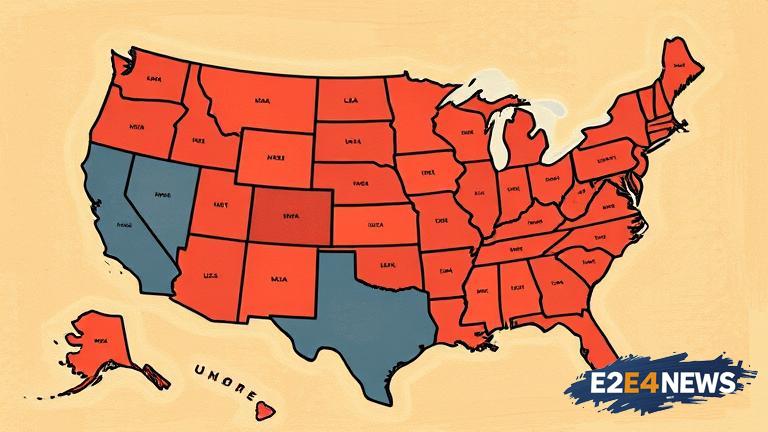The US government has recently announced plans to withhold funding from states that do not comply with federal immigration policies. This move has sparked controversy and debate across the country, with many arguing that it is an overreach of federal power. The policy in question requires states to cooperate with federal immigration authorities and provide them with access to detention facilities. States that do not comply with this policy may face a loss of funding, which could have significant consequences for their economies and social services. The issue has been a point of contention between the federal government and states for some time, with many states arguing that they have the right to set their own immigration policies. The federal government, on the other hand, argues that it has the authority to enforce immigration laws and that states must cooperate with its efforts. The policy has been met with resistance from many states, including California, New York, and Illinois, which have all passed laws or implemented policies that limit their cooperation with federal immigration authorities. These states argue that the federal government’s policy is an attempt to coerce them into enforcing federal immigration laws, which they believe is not their responsibility. The issue has also been the subject of several court cases, with some judges ruling that the federal government does not have the authority to withhold funding from states that do not comply with its immigration policies. Despite these challenges, the federal government has vowed to continue its efforts to enforce immigration laws and to withhold funding from states that do not cooperate. The policy has significant implications for the country, particularly for states with large immigrant populations. It could also have consequences for the economy, as a loss of funding could lead to cuts in social services and other programs. The issue is likely to continue to be a point of contention between the federal government and states, with many arguing that it is a matter of states’ rights versus federal authority. The policy has also been criticized by many advocacy groups, which argue that it is an attack on immigrant communities and could lead to increased deportations and detention. The federal government has argued that its policy is necessary to ensure public safety and to enforce immigration laws, but many disagree. The issue is complex and multifaceted, with many different perspectives and opinions. It is likely to continue to be a major point of debate and controversy in the coming months and years. The policy has also raised questions about the role of the federal government in enforcing immigration laws and the extent to which states should be required to cooperate with its efforts. The issue has significant implications for the country and its immigrant communities, and it is likely to continue to be a major point of contention between the federal government and states. The federal government’s policy has been met with resistance from many states, and it is likely that the issue will continue to be the subject of court cases and debates in the coming months and years. The policy has significant consequences for the country, particularly for states with large immigrant populations, and it is likely to continue to be a major point of debate and controversy. The issue is complex and multifaceted, with many different perspectives and opinions, and it is likely to continue to be a major point of contention between the federal government and states. The policy has also been criticized by many advocacy groups, which argue that it is an attack on immigrant communities and could lead to increased deportations and detention. The federal government has argued that its policy is necessary to ensure public safety and to enforce immigration laws, but many disagree. The issue is likely to continue to be a major point of debate and controversy in the coming months and years, with many arguing that it is a matter of states’ rights versus federal authority.





